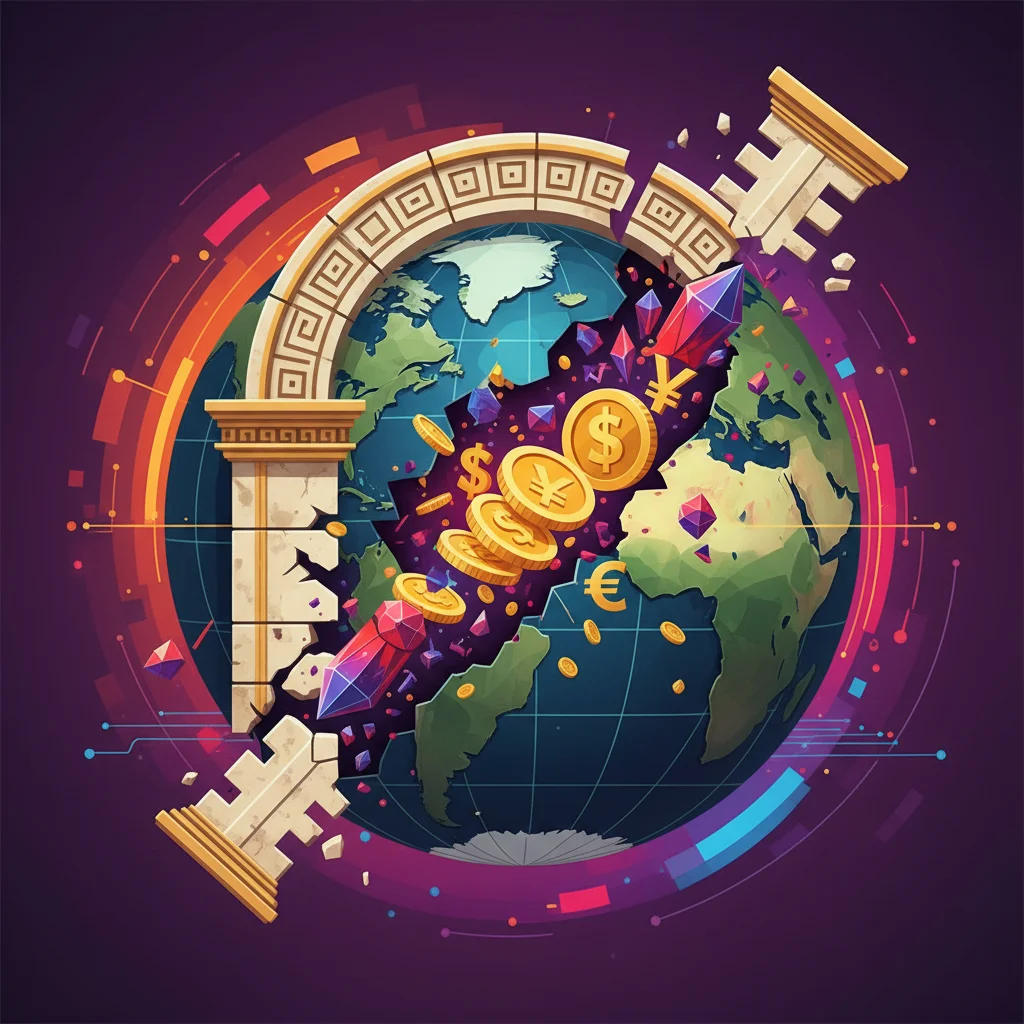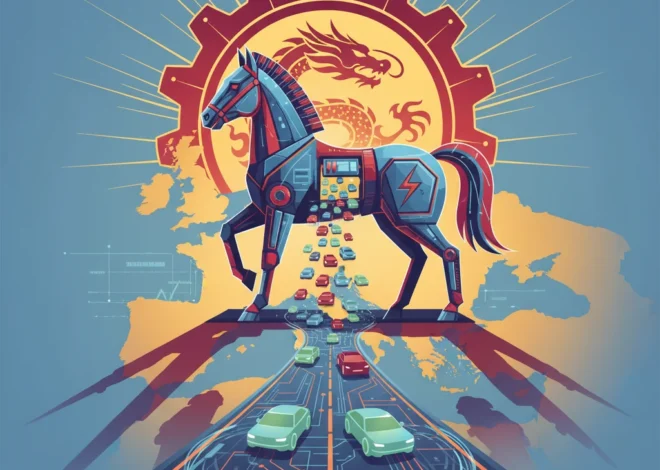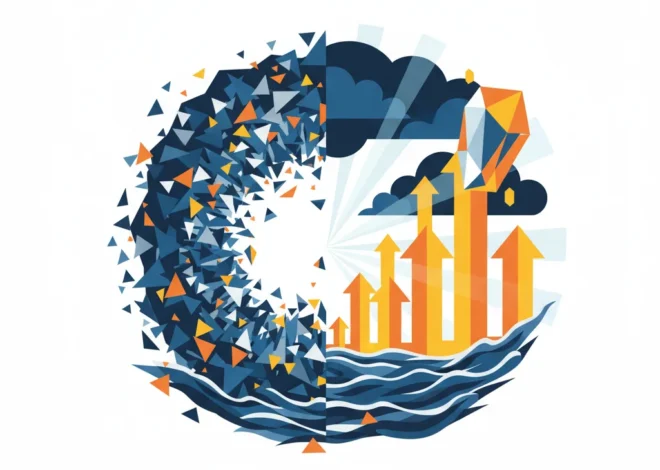
The Vatican’s Other Balance Sheet: Why an Ancient Institution’s Identity Crisis Impacts the Global Economy
An Ideological Fault Line with Global Economic Consequences
In the world of finance, we are accustomed to analyzing conflicts: activist investors versus entrenched boards, disruptive fintech startups versus legacy banking giants, free-market bulls versus regulation-minded bears. Yet, one of the most significant ideological clashes unfolding today—one with profound implications for the global economy and political stability—is happening within the walls of a 2,000-year-old institution: the Catholic Church. This isn’t merely a theological debate; it’s a battle for the soul of a global power, pitting a cosmopolitan, universalist Vatican against a rising tide of Catholic nationalism. For investors and business leaders, understanding this conflict is crucial, as it serves as a barometer for the political and economic forces reshaping our world.
The tension has been escalating for years, but its historical roots run deep. At the heart of the matter is the interpretation of the Church’s role in civil society. Is its primary function to serve a universal human family, transcending borders to advocate for the poor and marginalized? Or is it to act as the spiritual bedrock of the nation-state, defending traditional culture and national sovereignty? The answer to this question has direct consequences for everything from immigration policy and international trade to the very structure of the Western political order. This internal schism is a microcosm of the broader global struggle between globalism and nationalism, a struggle that directly impacts market sentiment, investment risk, and the future of the international economy.
The Pope’s Doctrine: A 130-Year-Old Blueprint for a Global Economy
To grasp the current divide, we must look back to 1891. As the Industrial Revolution roared, creating unprecedented wealth alongside stark inequality, Pope Leo XIII issued a landmark encyclical, Rerum Novarum (“Of New Things”). This document was a radical attempt to chart a third way between laissez-faire capitalism and revolutionary socialism. It championed workers’ rights to fair wages, safe conditions, and the formation of unions, while also defending the right to private property. Crucially, it argued that the state has a moral obligation to intervene in the economy to protect the vulnerable and serve the “common good.”
This doctrine laid the intellectual groundwork for what would become the modern welfare state in many Western nations. As noted in a recent analysis by the Financial Times, Pope Leo XIII’s vision was fundamentally cosmopolitan. He saw the “civil society” whose good must be served not as a single nation, but as a universal community. Pope Francis is the modern heir to this tradition. His papacy has been defined by a critique of market fundamentalism, a call for environmental stewardship, and a powerful defense of migrants and refugees—all tenets that flow directly from a universalist interpretation of Catholic social teaching.
This perspective views the globalized world not as a threat, but as the natural stage for the Church’s mission. It advocates for international cooperation and sees institutions that transcend national borders as essential tools for addressing global challenges like poverty and climate change. This worldview has clear parallels in the world of finance, mirroring the logic of global supply chains, international capital flows, and the belief that interconnectedness ultimately fosters greater prosperity.
Beyond the Pitch: What a Football Match Teaches Investors About Geopolitical Risk
Two Competing Worldviews: A Comparative Analysis
The clash becomes clearer when we contrast the Vatican’s official cosmopolitan stance with the burgeoning nationalist interpretation. The table below outlines the core tenets of these two opposing camps and their corresponding economic and political implications.
| Principle | Vatican’s Cosmopolitan View (Pope Francis) | Catholic Nationalist View |
|---|---|---|
| Primary Locus of “Civil Society” | The universal human family; international community. | The nation-state; the national community. |
| View on Immigration | A moral duty to welcome and integrate migrants and refugees. | A threat to national identity, security, and economic stability; borders must be strictly controlled. |
| Economic Policy Preference | Critique of market excesses; support for international regulation, foreign aid, and environmental accords. A regulated form of global capitalism. | Economic protectionism; prioritizing domestic industries and workers (“our” people first). Skepticism of free-trade agreements. |
| Stance on Global Institutions (e.g., UN, EU) | Essential partners for achieving peace and justice. | Threats to national sovereignty that should be resisted or reformed. |
| Core Financial Analogy | A diversified, global investment portfolio aimed at long-term, sustainable (ESG) growth for all stakeholders. | A concentrated “domestic stock” portfolio focused on maximizing returns for a single national economy. |
From Pulpit to Portfolio: The Economic Ripples of a Spiritual War
Why should a Wall Street trader or a C-suite executive care about a debate over a 19th-century papal letter? Because the nationalist movements gaining traction across the West—from the United States to Italy, Hungary, and France—are increasingly infused with, and legitimized by, this brand of religious identity politics. This alliance gives a powerful moral and spiritual dimension to policies that have direct economic consequences.
When political movements advocate for tearing up trade deals, imposing steep tariffs, or severely restricting immigration, they are not just making economic arguments; they are often making identity-based arguments rooted in a nationalist worldview. This ideology, when it translates into policy, creates significant headwinds for the global economy. It disrupts supply chains, increases costs for businesses, and can trigger retaliatory measures, leading to trade wars that harm both national economies and global market stability. The political risk associated with this trend is a major variable in any modern investing strategy.
Furthermore, the Catholic Church is not just a spiritual entity; it’s a global institution with immense “soft power,” a vast network of NGOs, and significant financial holdings. A Church deeply divided and at war with itself is a less effective actor on the world stage. Its ability to mediate conflicts, advocate for the poor, and provide a moral counterweight to raw political power is diminished. This erosion of institutional stability contributes to a more volatile and unpredictable geopolitical landscape—a landscape that is anathema to long-term investment and economic planning.
The Decentralization of Authority: Lessons for Banking and Fintech
There is a fascinating parallel between the Vatican’s struggle and the challenges facing the world of traditional banking and finance. The Vatican represents a centralized, hierarchical authority, much like a central bank or a major financial institution. It sets doctrine (monetary policy) from the top down, which is then implemented through its global network of dioceses (branch offices).
The Catholic nationalist movement, however, operates more like a decentralized network. It’s fueled by social media, charismatic local leaders, and a grassroots distrust of the central authority. This mirrors the dynamic between the established financial system and the world of decentralized finance (DeFi) and blockchain. DeFi proponents argue for a system that removes central intermediaries, empowering individuals and local networks. Similarly, Catholic nationalists are, in effect, trying to “disintermediate” the Vatican, claiming a more direct and “authentic” connection to the faith that aligns with their national identity.
This highlights a critical challenge for any legacy institution in the 21st century: how to maintain authority and a coherent mission when financial technology and communication tools empower decentralized movements to challenge the core narrative. Whether you are the Pope in Rome or the CEO of a global bank in New York, the problem is the same. Trust in centralized institutions is eroding, and powerful new ideologies, enabled by new technologies, are competing for the loyalty of your stakeholders. The Vatican’s response to this internal insurgency offers a real-time case study in institutional survival in an age of radical decentralization.
Beyond the Cobblestones: Why San Miguel de Allende is a New Frontier for Finance and Investment
Conclusion: Ideology as a Leading Economic Indicator
The conflict between the Vatican’s universalist vision and the rise of Catholic nationalism is not a distant, abstract debate. It is a key battleground in the wider war of ideas shaping the 21st-century global order. The outcome will have tangible effects on international relations, economic policy, and the stability of the very institutions that underpin the global market.
For those in finance, investing, and business, the lesson is clear: ideology is a powerful, and often underestimated, driver of market dynamics. The abstract beliefs forged in seminaries and articulated from pulpits can, and do, translate into the political and economic policies that dictate the flow of capital around the world. Ignoring this profound ideological collision is not an option. It is a leading indicator of the geopolitical and economic volatility that lies ahead, and understanding it is essential for navigating the complex risk landscape of the future.


